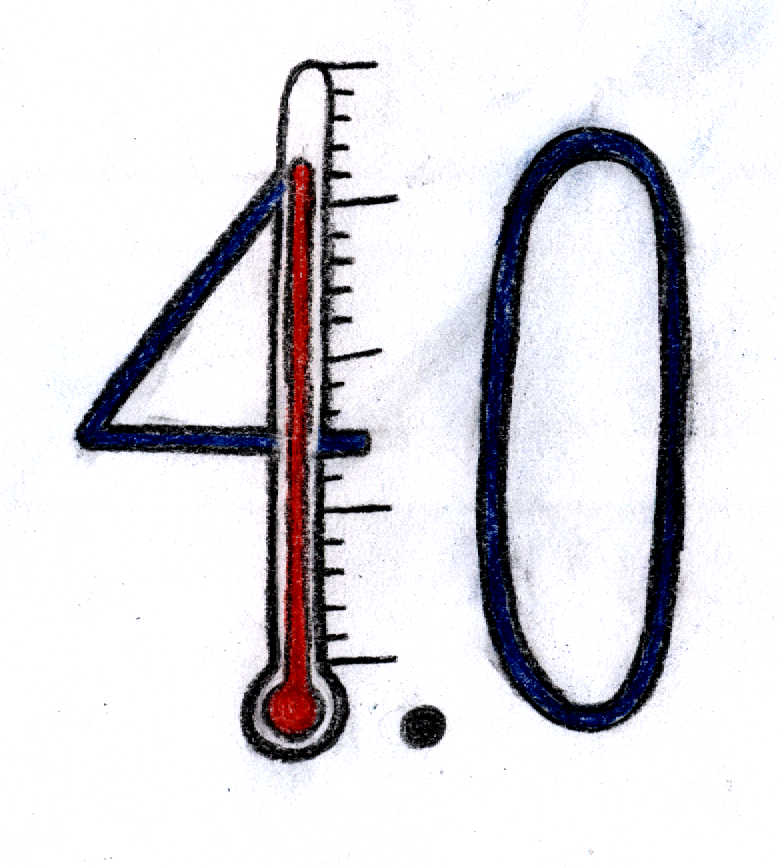4.0 GPA: The Unhealthy Obsession
December 13, 2017
Ever since the start of junior year, my friends and I have been in constant fear to check Synergy. For some students, a B in the grade book is like the end of the world. Many stay up late into the night to perfect their assignments in order to maintain straight A’s and a 4.0 GPA. We put some much faith into our GPA, as if it can reveal some unbeknownst truth to us.
Students who aspire toward a 4.0 are mostly trying to look desirable for their dream school, or to impress parents and/or peers. Sometimes a perfect GPA is attained for the student’s own pride and feeling of self-confidence. One of the main purposes of GPA seems to be a comparison tool, as well as a way to standardize knowledge. Colleges are especially mindful of your GPA, trying to get a sense of how your preformed in high school, narrowing down how good you are at academic learning.
In various ways, the 4.0 system can control how we perceive ourselves as learners. Numbers can be a great way to track our learning progress throughout school, but the representation behind them is lacking. We cannot continue to quantify our intelligence with a completely arbitrary number that is supposed to represent how we learn and process new information. The desire to earn a 4.0 GPA and straight A’s can be a good incentive to challenge students. But are students really working toward learning, or are they motivated toward attaining a so-called “perfect” number?
When systems of education clash with numerical values they are no longer working towards students understanding concepts and ideas. We are not doing the assignment to learn and develop intellect, we are doing it so we can get a grade. If we work toward a written statement by the teacher that describes a desired goal for an assignment, meeting their expectations could be less ambiguous.
Juggling several or many rigorous classes can be a burden on a student’s daily schedule if you factor in extracurriculars and/or sports. Maintaining a good GPA can be extremely time consuming, so much so, that it can dig into your sleep schedule, even if you have never procrastinated.
Junior full IB student Caitlyn Fong said, “Junior year in particular has taken a huge toll on my sleep.” She claimed that some nights she gets as little as four hours of sleep. “Limping through a day on four hours of sleep is real rough. It’s a rough cycle, because bad sleep leads to bad decisions and bad focus, and the next thing you know, it’s 2 a.m. again and you still have [homework] to finish,” she said.
We push ourselves relentlessly towards mental and physical exhaustion, only to realize it’s led to bad scores and grades in the first place.
Your GPA also undermines the accomplishments you’ve made as learner, inside and outside of school. This number becomes the single story of who you are as a learner and student, offering a one dimensional student profile.
Rosa Christen, full IB junior, offered a different take on what her GPA may represent, saying, “My GPA represents how much work I get in and how lenient my teachers are. I believe in situations where I don’t have seven other classes to worry about, I am pretty good at internalizing concepts. However, when you have eight difficult classes and teachers ramming homework down your throat, your grade is going to suffer. [I]t represents my ability to time manage.”
Good grades are important to aim for, don’t get me wrong. But there is so much more to high school and life than worrying about a number.
We need to deconstruct the notion that a perfect GPA is part of the recipe for success and a perfect after-high school life. Fong summarized what the value of her grades meant to her, saying, “…I feel like my GPA is an inaccurate representation of me as a learner. In our schools, grades and numbers are given so much power and value. [The four point scale can be] discouraging and damaging to students [when] they don’t have the GPA that they want, or think it’s what a good student should have.”
The system that has been put in place is not sufficient enough for high school students. A better approach to grading and evaluating students is to give them a written assessment. If teachers were not only allotted enough time to make personalized assessments for each student, and also if schools had a smaller student-to-faculty ratio, then this could possibly become a reality. Because public high schools in the Portland metro area are packed to the brim with students with few teachers, this goal sounds far fetched. As of now, we must be weary of our imperfect system that attempts to accurately represent how much we know.
Most important, we need to separate the GPA from the person. Not all of the most hardworking students are full IB nor are they straight A students. Our self-worth cannot be reflected in a grade; we are more than just a number.












Ally Grimaldi • Jan 2, 2018 at 9:10 AM
What a beautifully written and very important piece, Lily! This kind of work makes me proud to be an alumna.